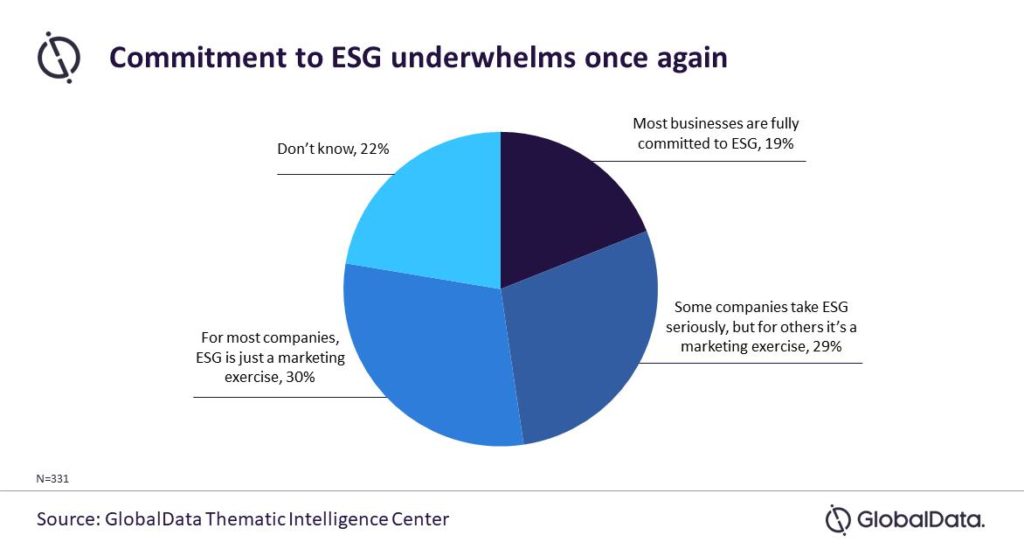Despite the growing attention on environmental, social, and governance (ESG) performance, many companies are still struggling to communicate their ESG strategies to stakeholders, leading to a lack of awareness and understanding of their efforts in this area.

GlobalData’s ESG Sentiment Polls Q4 2022 found that 68% of respondents either believed that their company did not have an ESG plan or were unable to say whether their company had an ESG strategy. This speaks either to complacency or a need for more transparency surrounding ESG.

Cyrus Mewawalla, head of thematic intelligence at GlobalData, comments: “The reluctance of many CEOs to fully engage with ESG can be attributed to the age-old view that it will hurt profits.
"Our research suggests the opposite. Companies that embrace all three elements of ESG will outperform their peers. CEOs that are too slow to improve their company’s approach to sustainability will see an exodus of customers and a drop in profits far sooner than they ever imagined.”
GlobalData’s report, Global Social Responsibility Trends by Sector, 2022 – Thematic Intelligence, reveals that many social issues came under the spotlight in 2022. Unemployment above pre-pandemic levels, the impact of war on children, gender inequality, and many more factors greatly impacted social performance for businesses in 2022.
The ESG framework developed by GlobalData serves as a valuable management tool to evaluate a company’s ESG performance. It can help identify factors that lead to negative ESG outcomes and provide insights into actions that can be taken to enhance the company’s ESG performance.
“Any failure to demonstrate the commitment to ESG may potentially impact reputation and long-term sustainability. As a result, businesses must prioritize ESG and take action to address the social issues that emerged in 2022 to remain competitive and meet the expectations of their stakeholders.”
Cyrus Mewawalla




